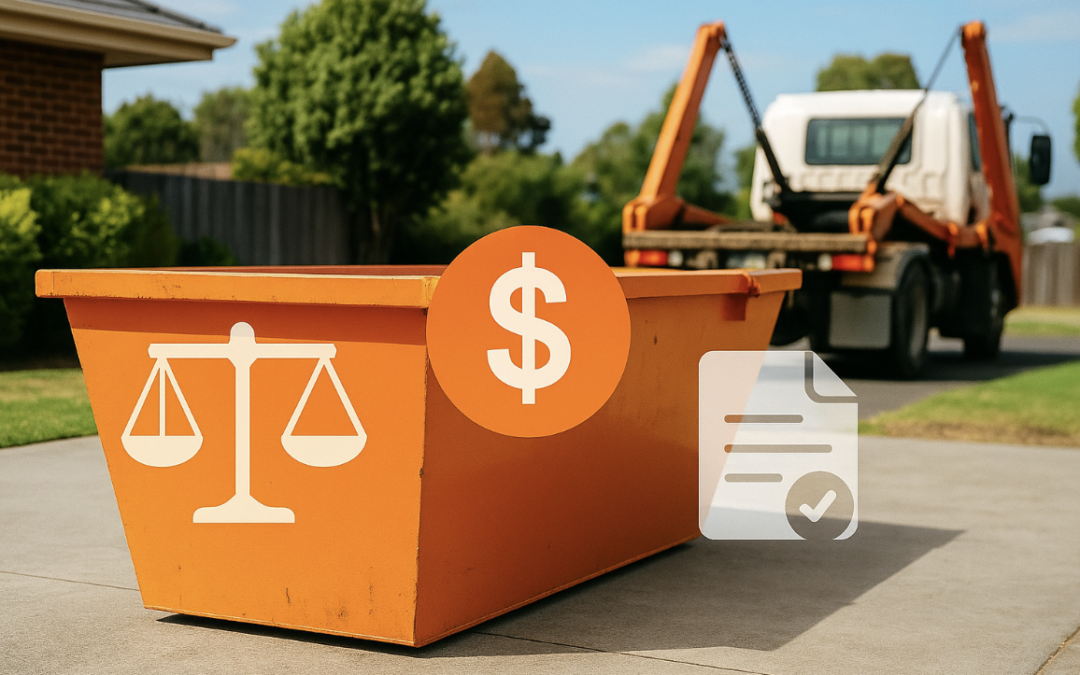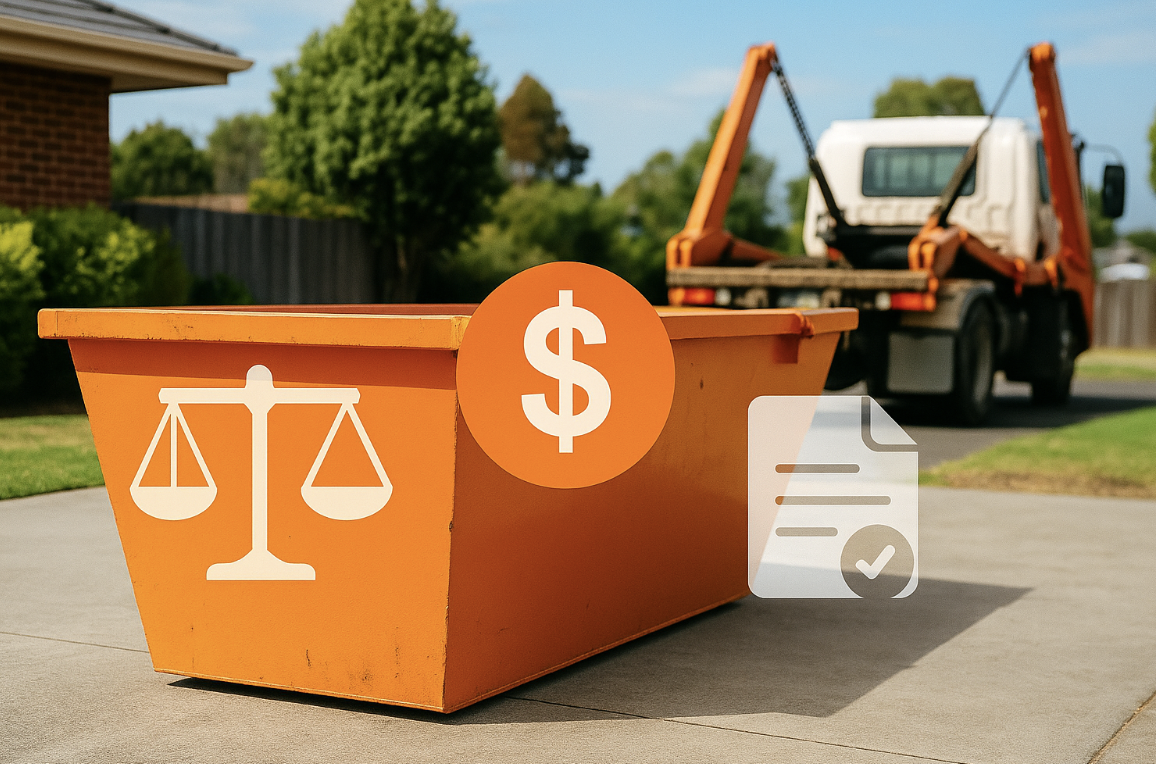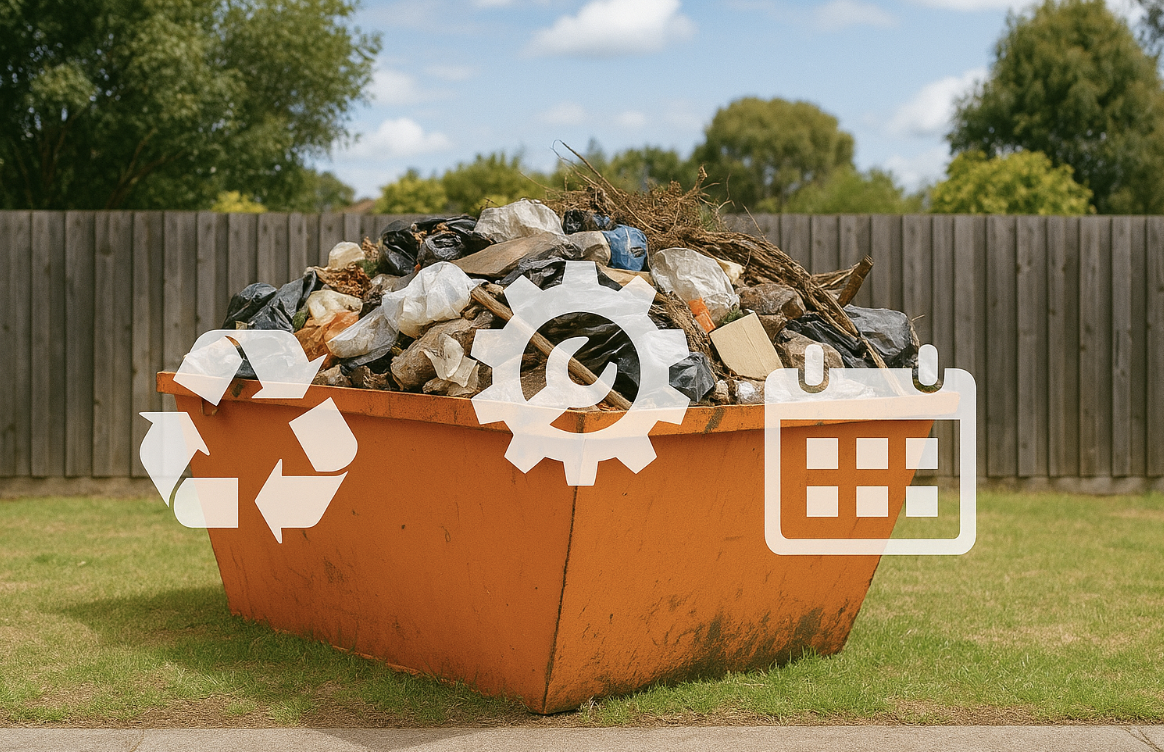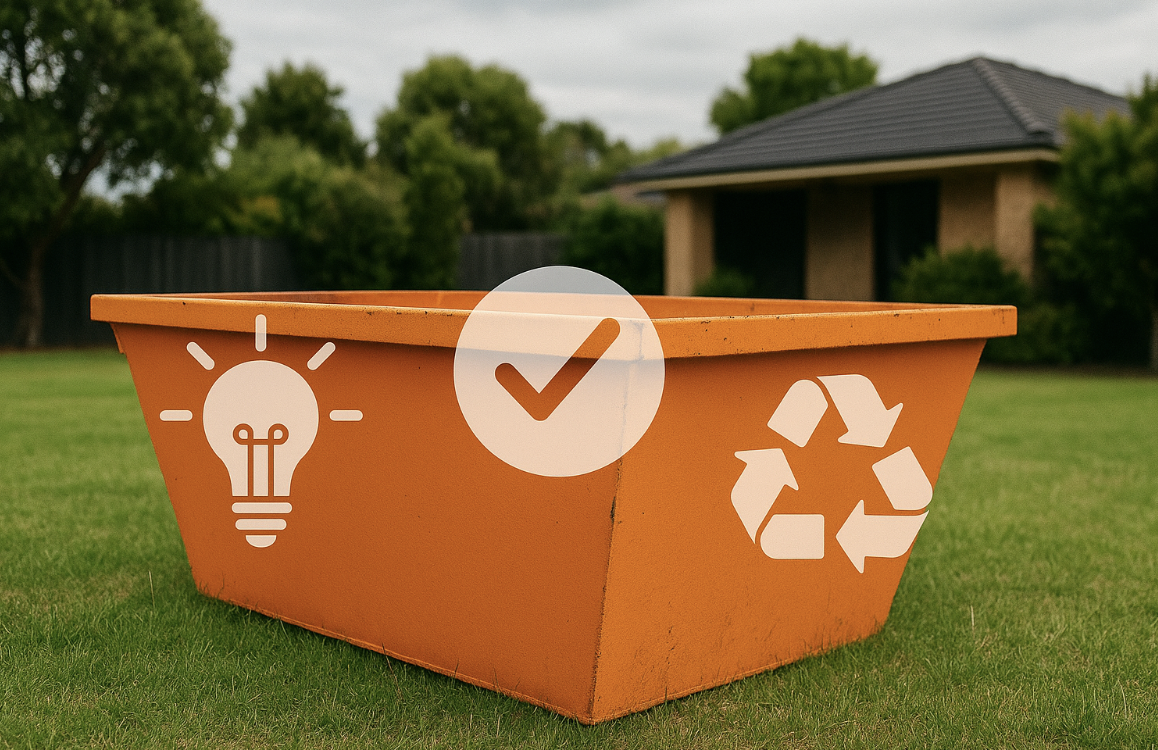Introduction | Why “Total Cost” Matters
Many hire companies use a low base price to attract bookings, then stack on add-ons later so the final invoice is much higher than expected. This guide breaks down the most common “hidden charges” and gives you a copy-ready checklist so you can clarify and lock down every item before you book.
The Most Common Hidden Fees & How to Clarify Them
1) Overweight Fees
What it is: Extra charges when the bin exceeds its weight allowance.
Why it surprises people: Limits and pricing rules often sit in the fine print; high-density waste (concrete, soil, rubble, wet timber) is easy to underestimate.
-
Ask for the exact weight allowance for your bin size.
-
Confirm how overages are charged (per kg or in tiers) and whether weighbridge/scale evidence is provided.
-
Get the numbers and method in writing on the quote.
2) Delivery & Pickup Charges
What it is: Fees based on distance or service area, sometimes revealed only after you enter your address.
How to clarify:
-
Ask if delivery and pickup are included. If not, what are the exact amounts?
-
Check if pricing varies by postcode bands and request the distance/zone table.
3) Postcode / Location Surcharges
What it is: Additional fees for certain suburbs or regional areas.
How to clarify:
-
Provide your full address and ask for an all-inclusive to-door price.
-
Have the surcharge itemised on the quote (no last-minute add-ons).
4) Restricted Items Disposal
What it is: Extra charges for items needing special handling—e.g., mattresses, plasterboard, e-waste/batteries, tyres, paint/chemicals, or asbestos-containing materials.
How to clarify:
-
Request a written list of prohibited items and allowed-with-surcharge items.
-
Ask for per-item or per-tonne fees and any loading guidelines/diagrams.
5) GST & Administrative Fees
What it is: GST and booking/processing/card fees that may not be in the headline price.
How to clarify:
-
Confirm if the quoted price includes GST. If not, ask for the GST-inclusive total.
-
Ask about any admin/processing/payment surcharges.
6) Insurance & Damage Liability
What it is: Costs for property damage (e.g., driveway) or environmental incidents if responsibilities aren’t clearly defined.
How to clarify:
-
Request insurance proof and a liability statement defining who pays for what.
-
Ask whether ground protection pads are provided and whether they’re free.
7) Council Permit Fees
What it is: Fees if the bin sits on public land (street/nature strip).
How to clarify:
-
Ask whether a permit is required, who applies, how much it costs, and how long approval takes.
-
Ensure the quote states whether the permit fee is included or excluded.
Seven Questions to Ask Before You Hire (and get the answers in writing)
-
Is this an all-inclusive to-door price? What exactly is included and excluded?
-
What is the weight allowance? How are overages charged? Will you provide weighbridge/scale evidence?
-
Are there delivery/pickup or postcode surcharges for my address? How much?
-
What restricted items attract extra charges, and what are the rates?
-
Does the quote include GST? Any admin/booking/card fees?
-
Who is liable for property damage or environmental incidents? Do you have insurance?
-
Do I need a council permit? Who arranges/pays, and is it included?
Practical Checklist to Avoid Extra Charges
-
Write it down on one page: bin size, volume, weight allowance, delivery/pickup/postcode fees, permit fees, taxes, restricted items and their rates.
-
Verbally reconfirm gaps: Anything not written on the quote should be confirmed by phone/email and added in writing.
-
Pre-sort your waste: Keep mattresses, electronics, batteries, paint tins, asbestos, etc. out of the general bin to avoid surcharges.
-
Manage weight density: For rubble/soil and other heavy materials, use smaller bins or split loads.
-
Stay within fill lines: Do not overfill above the rim or allow items to protrude.
-
Keep records: Photo/video delivery, loading, and weighing; keep communications and invoices.
-
Know cancellations/changes: Confirm latest cancellation time, reschedule fees, and any early pickup refunds.
-
Compare at least two suppliers: For the same address and waste type, compare to-door, GST-inclusive totals with full terms.
Common “Tripwires” & How to Avoid Them
-
“Ultra-low starter price”: Often excludes delivery, taxes, or postcode surcharges.
-
“Unlimited weight/fill”: Usually contradicted by terms, or recouped via steep overweight fees.
-
“We’ll sort it on site”: Leads to disputes at pickup/weighing—lock the terms in writing beforehand.
-
Verbal-only quotes: Always get a written quote and keep message threads.
-
Opaque bundle pricing: Ask for a line-item breakdown so suppliers are truly comparable.
Conclusion | Turn Uncertainty into Certainty
Hidden costs aren’t scary—information gaps and missing written terms are. Use this guide’s questions and checklist to nail down the seven common uncertainty areas—weight, delivery, postcode, restricted items, taxes, insurance, and permits—so you can secure a real, controllable total price and avoid surprises on collection day.





Recent Comments